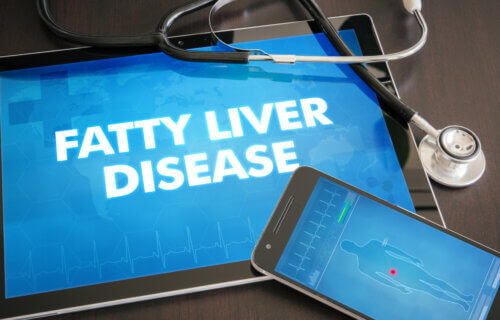BIRMINGHAM, United Kingdom — Concerning new research reveals a connection between non-alcoholic fatty liver disease (NAFLD) and an increased risk of developing personality disorders. Researchers from the University of Birmingham found that despite knowing the importance of maintaining a healthy diet and exercise routine, NAFLD patients frequently exhibited an inability to control their eating habits and behaviors.
The most common cause of chronic liver disease in wealthy nations, NAFLD is the culprit behind a notable rise in liver-related deaths in recent years. Roughly 25 percent of U.S. adults have NAFLD, according to estimates. While symptoms are few and far between during its early stages, the disease can eventually progress to cirrhosis and liver failure in at-risk individuals (like diabetics) if left untreated.
Non-alcohol steatohepatitis, a more serious form of NAFLD characterized by liver inflammation, is the most common cause of cirrhosis in industrialized countries — where liver disease deaths have increased four-fold over the past five decades.
Now, study authors have found that NAFLD patients are roughly three times more likely to have a personality disorder in comparison to others without the disease. As such, researchers believe all NAFLD patients should be screened for personality disorders. If doctors identify one, researchers recommend treating any mental health disorders before the patient starts trying to manage their diet and exercise habits.
“Finding an increased prevalence of personality disorders in NAFLD patients is particularly striking – signifying that it’s not an issue associated with all liver disease, but just those with NAFLD,” says study co-author Dr. Jonathan Catling in a university release.
“Importantly, it appears not to be a general mental health issue, as neither anxiety nor depression were found to be significantly different between the groups – despite both psychiatric disorders often being associated with chronic liver disease.”

While plenty of medical evidence tells us that simple changes to one’s diet and a bit more habitual exercise can help prevent the progression of NAFLD, doctors often find it very difficult to persuade patients to follow prescribed lifestyle changes. However, researchers admit this trend may be influenced by the fact that many NAFLD patients are also encouraged to boost their protein and calorie intake as a means of reversing nutritional declines often seen during chronic liver disease.
All in all, the study authors stress that despite being aware that lifestyle changes can help, NAFLD patients frequently fail to make the necessary adjustments to their routines. Even among patients receiving a liver transplant due to NAFLD, two in five showed signs of fatty liver disease recurring within five years of the transplantation.
“Our findings suggest an urgent need to examine attitudes towards diet and exercise so that we can better understand how to motivate NAFLD patients and deliver more effective treatment – preventing disease recurrence after liver transplantation,” Dr. Catling adds.
The research team says that a key factor determining patients’ attitudes towards weight loss is their internal and external “locus of control” (LoC) – which refers to how much control they believe they have over their own lives. Patients with a high internal LoC usually see life events as a result of their own actions and are thus more likely to find success in losing weight.
NAFLD patients, similar to individuals with substance abuse disorders, may display increased external LoC. In other words, they see life events as out of their control and struggle to make and maintain the necessary changes to their diets and exercise regimes that could help prevent fatty liver disease from progressing into its more serious, irreversible stages.
Classified as a metabolic disorder, NAFLD is characterized by the presence of lipid droplets in the liver and the absence of excessive alcohol consumption. Study authors conclude NAFLD remains a major global health issue and a complex, multi-faceted disease. NAFLD’s main risk factors are obesity and insulin resistance, so the disease’s prevalence is especially challenging for Western societies dealing with rising rates of obesity-related disease.
The study is published in the journal BMC Gastroenterology.

